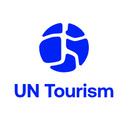“Travel Restrictions Don’t Work”: UNWTO Adds Its Voice To WHO Statement
The World Tourism Organization (UNWTO) has welcomed the call of its sister UN agency World Health Organization (WHO) for restrictions on travel to be lifted or eased.
Citing new evidence on the rise and spread of the Omicron variant of COVID-19, WHO has noted that restrictions on travel are not only ineffective but also counter-productive. Echoing UNWTO’s recuring warning against the use of blanket restrictions, the 10th meeting of the WHO’s International Health Regulations Emergency Committee (Geneva, 19 January) concluded that such measures have done little to stop the spread of new variants and instead have caused social and economic harm, most notably in developing states.
The Committee also noted that travel restrictions can “discourage transparent and rapid reporting of emerging Variants of Concern”, in line with UNWTO’s warning at the end of 2021. The WHO also states that additional travel measures and mitigations, including but not limited to testing, isolation and quarantine, and vaccinations, should be always “evidence-based” and adapted to changing circumstances.
UNWTO Secretary-General Zurab Pololikashvili says: “When it comes to stopping the spread of new virus variants, travel restrictions are simply not effective. In fact, by cutting the lifeline of tourism, blanket restrictions do more harm than good, especially in destinations reliant on international tourists for jobs, economic wellbeing and sustainable change.”
The United Nations World Economic Situation and Prospects Report for 2022 – to which UNWTO provided the official travel related data - has noted that in both developed and developing, recovery from the impacts of the pandemic is “uneven and fragile”. It also highlights the substantial reversal in progress towards achieving the Sustainable Development Goals (SDGs).
“It is imperative we restart tourism and so kickstart recovery and get back on track towards meeting the SDGs while responding to Climate Imperatives,” Mr Pololikashvili adds. “UNWTO welcomes WHO’s new guidance, highlighting the ineffectiveness of travel restrictions, and we also amplify their recommendations against using vaccination status as the sole condition for welcoming tourists back, especially when vaccination rates remain so uneven.”
RELATED LINKS:
- UN report Underscores Importance of Tourism for Economic Recovery in 2022
- UNWTO Calls Against Blanket Travel Restrictions
About UN Tourism
The World Tourism Organization (UN Tourism) is the United Nations agency responsible for the promotion of responsible, sustainable and universally accessible tourism.
As the leading international organization in the field of tourism, UN Tourism promotes tourism as a driver of economic growth, inclusive development and environmental sustainability and offers leadership and support to the sector in advancing knowledge and tourism policies worldwide.
Our Priorities
Mainstreaming tourism in the global agenda: Advocating the value of tourism as a driver of socio-economic growth and development, its inclusion as a priority in national and international policies and the need to create a level playing field for the sector to develop and prosper.
Promoting sustainable tourism development: Supporting sustainable tourism policies and practices: policies which make optimal use of environmental resources, respect the socio-cultural authenticity of host communities and provide socio-economic benefits for all.
Fostering knowledge, education and capacity building: Supporting countries to assess and address their needs in education and training, as well as providing networks for knowledge creation and exchange.
Improving tourism competitiveness: Improving UN Tourism Members' competitiveness through knowledge creation and exchange, human resources development and the promotion of excellence in areas such as policy planning, statistics and market trends, sustainable tourism development, marketing and promotion, product development and risk and crisis management.
Advancing tourism's contribution to poverty reduction and development: Maximizing the contribution of tourism to poverty reduction and achieving the SDGs by making tourism work as a tool for development and promoting the inclusion of tourism in the development agenda.
Building partnerships: Engaging with the private sector, regional and local tourism organizations, academia and research institutions, civil society and the UN system to build a more sustainable, responsible and competitive tourism sector.
Our Structure
Members: An intergovernmental organization, UN Tourism has 160 Member States, 6 Associate Members, 2 Observers and over 500 Affiliate Members.
Organs: The General Assembly is the supreme organ of the Organization. The Executive Council take all measures, in consultation with the Secretary-General, for the implementation of the decisions and recommendations of the General Assembly and reports to the Assembly.
Secretariat: UN Tourism headquarters are based in Madrid, Spain. The Secretariat is led by the Secretary-General and organized into departments covering issues such as sustainability, education, tourism trends and marketing, sustainable development, statistics and the Tourism Satellite Account (TSA), destination management, ethics and risk and crisis management. The Technical Cooperation and Silk Road Department carries out development projects in over 100 countries worldwide, while the Regional Departments for Africa, the Americas, Asia and the Pacific, Europe and the Middle East serve as the link between UN Tourism and its 160 Member States. The Affiliate Members Department represents UN Tourism's 500 plus Affiliate members.
UNWTO Communications Department
+34 91 567 8100
UN Tourism
